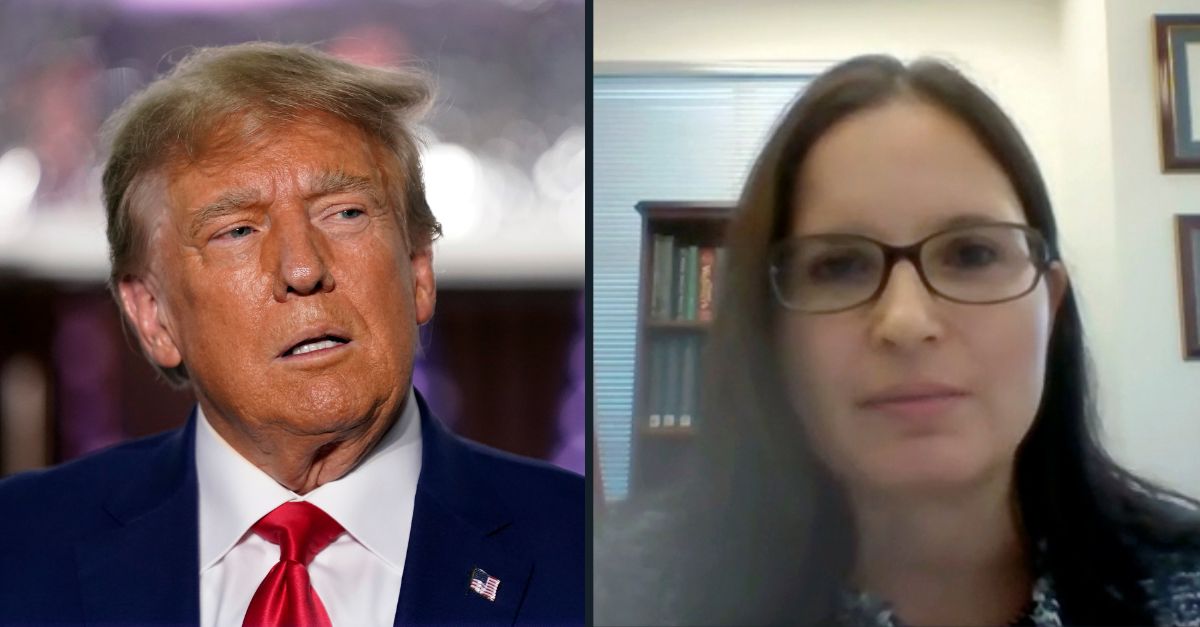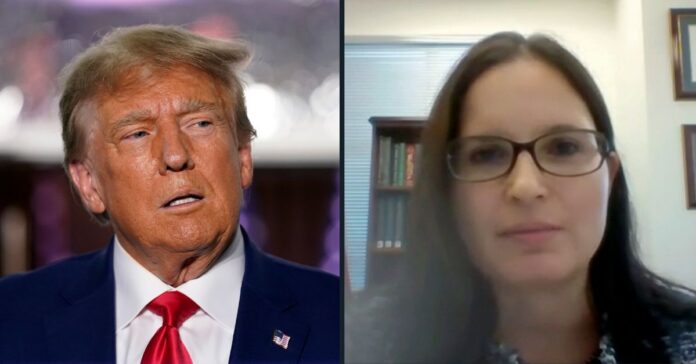
Left: FILE — Former President Donald Trump speaks at Trump National Golf Club in Bedminster, N.J., June 13, 2023, after pleading not guilty in a Miami courtroom earlier in the day to mishandling classified documents. (AP Photo/Andrew Harnik, File). Right: In this image from video provided by the U.S. Senate, Aileen M. Cannon speaks remotely during a Senate Judiciary Committee oversight nomination hearing to be U.S. District Court for the Southern District of Florida on July 29, 2020, in Washington. (U.S. Senate via AP).
Despite losing big at the appeals court level, Donald Trump has signaled an intention to press forward with his immunity defense in at least one of the multiple criminal prosecutions facing the former president.
Lawyers for Trump filed a motion to adjourn certain pretrial motion deadlines on Tuesday in the Florida case over the former president’s allegedly wrongful retention of documents in his Mar-a-Lago home. They have asked U.S. District Judge Aileen Cannon, a Trump appointee, to allow Trump, along with co-defendants Waltine Nauta and Carlos De Oliveira, to file evidentiary motions within one month of Cannon’s decision on motions to compel discovery currently before her.
Buried within the justification for the request is an indication that Trump will continue to pursue his “immunity” claim, despite having been repeatedly told that the defense doesn’t stand up to legal scrutiny.
“Defendants currently plan to file on February 22, at minimum, a series of motions to dismiss the Superseding Indictment and certain of the charges therein,” the Tuesday motion says. “Specifically, although the defense is still evaluating potential motions, we expect to file motions on February 22 relating to, inter alia, presidential immunity, the Presidential Records Act, President Trump’s security clearances, the vagueness doctrine, impermissible preindictment delay, and selective and vindictive prosecution.”
The motion was filed the same day as the U.S. Court of Appeals for the District of Columbia unanimously ruled that Trump is not immune from criminal indictment in Washington, D.C., where he faces four felony charges alleging he criminally conspired to overturn the results of the 2020 election.
“For the purpose of this criminal case, former President Trump has become citizen Trump, with all the defenses of any other criminal defendant,” the ruling states. “But any executive immunity that may have protected him while he served as president no longer protects him against this prosecution.”
On the question of executive immunity, the Supreme Court “has consistently held that even a sitting President is not immune from responding to criminal subpoenas issued by state and federal prosecutors,” the appeals court found, noting the question that was not only resolved in the cases of United States v. Nixon and, more than a century earlier, in United States v. Burr, but was also established in Trump v. Vance in 2020.
According to the Mar-a-Lago motion, Trump is “considering additional motions with respect to which we are entitled to further discovery, including motions to suppress evidence and/or dismiss the Superseding Indictment based on prosecutorial misconduct, due process violations, unlawful disregard of President Trump’s attorney-client privilege, the Mar-a-Lago raid, and the searches of defendants’ electronic devices.”
The pending motions, as well as the upcoming resolution of special counsel Jack Smith’s attempt to use the Classified Information Procedures Act (CIPA) to limit access to classified discovery, will “impact our analysis of whether and how to pursue some defense motions,” the filing says.
According to the motion, special prosecutor Jack Smith intends to oppose the request to change the scheduling order.
Read the filing here.
Have a tip we should know? [email protected]

